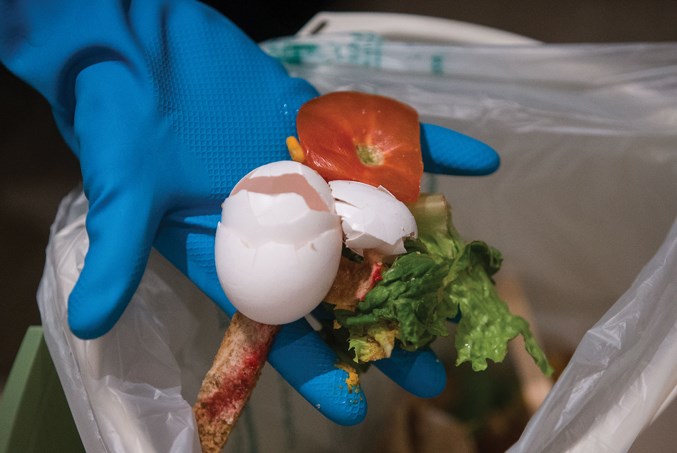If you see a university student looking through your waste bin this summer, don’t be alarmed as they’re supposed to be there.
GFL Environmental Inc., the waste collector for the Town of Westlock, is conducting a recycle audit of the municipality. The audit consists of checking what is being put in waste bins and sending residents a report on how effective their recycling practices are.
“A lot of people don’t know what you can recycle or what can go into an organics bin and what can’t,” said GFL operations manager Wade Chernichan.
“We open the lid of the bins and look at the bags, and there’s something that shouldn’t be there we leave a little note with suggestions.”
He explained the effort, which GFL is doing free of charge, came after recent reports showed that much of the trash sorted to go into recycling streams ends up in landfills because it is sorted incorrectly.
Aside from being detrimental to the recycling process, improper sorting wastes money as staff have to be paid to re-sort the trash, so keeping the public informed is an important first step.
“Roughly 20 to 30 per cent of people’s recycling ends up in the waste bin,” said Chernichan.
“We have our own sorting facility where we rip the bags open and pick through the waste, and half of it’s garbage nowadays. That’s costing everybody more money because it taking us so much longer to sort it.
“So we figure if we can get the word out and help people learn what can be recycled and what can’t. Also, if the rules of recycling change, how are people supposed to know if we don’t tell them.”
Among the mistakes being made are not washing plastic food containers before blue-bagging them, which contaminates the process when the plastic is melted down and damages the structural integrity of the plastic.
Another one people may be surprised to hear is that things like plastic, or ziplock bags cannot be recycled, nor can straws, plastic utensils or styrofoam packages. Consequentially, they end up going from transfer stations into landfills or water bodies.
“Any thin plastic can’t be recycled,” he said.
“Part of the problem is plastic bags are the cheapest thing out there to produce, you can make tons of them for pennies and they’re the biggest waste generator out there.
“Rigid plastics, like Tide containers, soap containers, ketchup bottles, mayonnaise jars, those can all be recycled, but small thin film plastic can’t.”
Chernichan said people can re-use plastic bags to get as much mileage out of them, but the ultimate solution to keeping plastic bags out of the ocean is to remove them from the system completely. The Regional Municipality of Wood Buffalo did that in 2010 and many retail stores currently charge a fee for plastic bags.
Another option available now is plant-based plastics, which cost more to produce, but have the advantage of being completely biodegradable, meaning you can recycle your leftover plastics in your garden as compost.
Adding to the challenge is a recent policy change in China, where most of the world’s recycling ends up. After years of poor sorting though, they are accepting far less of it.
“China probably took 60 to 70 per cent of the world’s recycling, but a lot of stuff people were sending them wasn’t recyclable,” he said. “A lot of garbage was hidden in the bales they were getting sent, so they decided they needed to stop it.”
All this extra sorting may seem like a lot of work, but Chernichan noted the long-term benefits of reducing waste make the time put in well worth it. In the end, education is key.
Chernichan noted that society is going to have to rethink how it handles its garbage, noting that there were few new landfills coming online and many of the active ones were filling up.
Chernichan said anyone who has questions is encouraged to talk to the students conducting the audit, noting they’re excellent sources of information.
“It’s our future. It’s our Earth — our planet,” he said. “What comes from the ground goes back into the ground. If people recycle properly and dispose of their organics properly, by putting their food scraps and pet litter into organic bins we really don’t have a lot of garbage at the end of the day.
“It’s in everyone’s best interests to recycle.”


